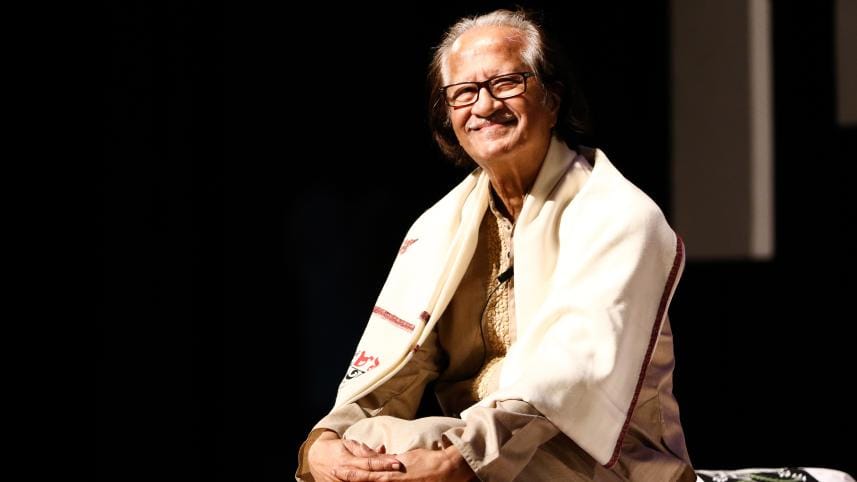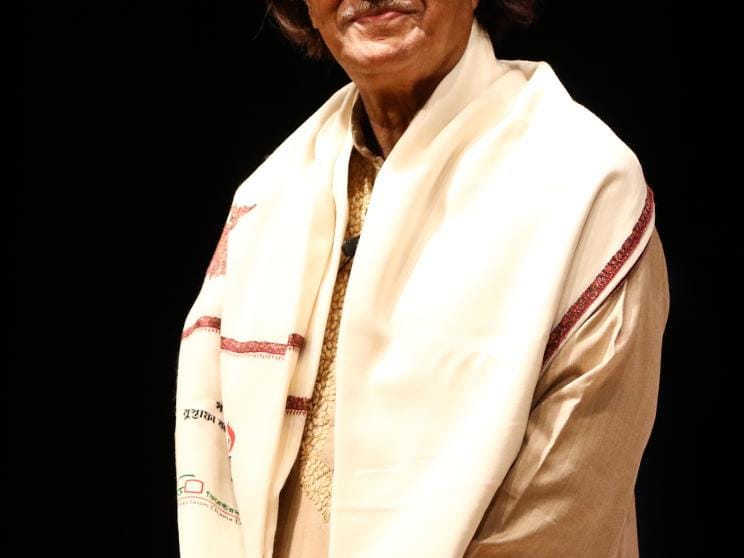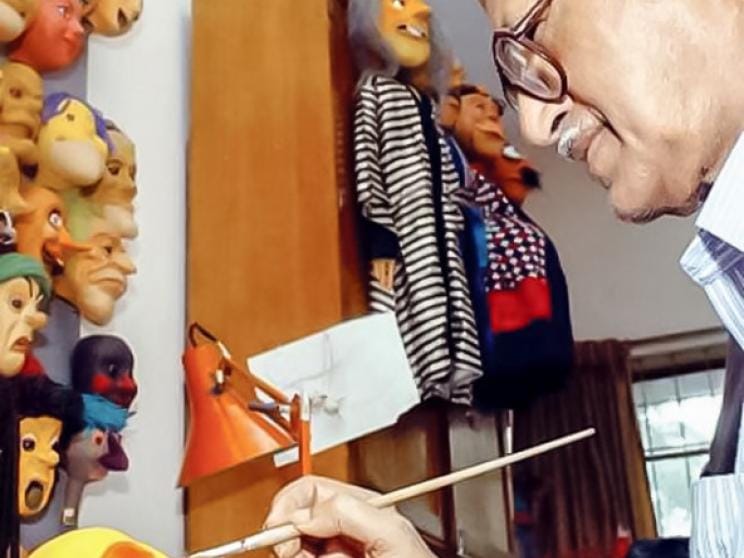The ‘puppet man’ who taught us to dream

For '90s kids, BTV was more than just television; it was a window into their childhoods. One show that left a lasting mark was the beloved children's programme "Moner Kotha".
I immediately fell in love with its vibrant characters: the bubbly Parul, the carefree Baul bhai who sang without a hint of worry, and the hilarious Shar bhai. Their personalities couldn't have been further apart, yet their friendship always shone through, amidst all the silliness. Each episode had its own little 'happily ever after'.
And then there was our favourite, Dadu bhai (Mustafa Monwar). He wasn't just a character. He was a teacher, a storyteller, and for many of us, the first person who taught us how to hold a pencil and see magic in the simplest lines. He would sketch a leaf, or a bird, and along with it share quiet lessons about life. Later, he appeared on screen as himself, fondly called 'Shilpi bhai' by Parul, Baul, and Shar. The man with the gentle smile and kind eyes wasn't simply drawing; he was opening windows into our imagination.

What I didn't know as a child was that this gentle figure was, in many ways, a rebel. Mustafa Monwar's art was never just about puppets or paintings. It was about freedom, about expression, and about believing that children deserve more than entertainment; they deserve hope, creativity, and courage.
While searching for "Moner Kotha" episodes on BTV's YouTube channel, I came across an old video interview, where he talked about its importance in his life.
He described how, even during challenging times, he pursued puppetry passionately, always learning and experimenting. When he joined BTV, he realised he wanted to create something truly meaningful for children.

"While coming up with names, I found a really beautiful one called Parul. I loved that she wakes up her seven brothers every day. Parul has the power to inspire change in society. Then there is Baul, a symbol of our culture, who sings from the heart and never offends anyone. He travels across the country with his songs, and all he wants is the well-being of the people. Shar bhai, the buffalo, listens to Baul's songs, loves painting, and tries to draw as well. Sometimes Shar bhai and Baul bhai get into playful fights. Despite all that, they still love each other deeply. Puppetry is a form of art. It teaches humanity, encourages us to embrace the beauty of nature within ourselves, and express that beauty through creativity," stated the renowned artiste.
Monwar's belief in the power of puppetry was tested during Bangladesh's Liberation War in 1971. He visited a large refugee camp where the silence of children struck him deeply. They had food and shelter, but their faces had no trace of joy.

With just three or four students, Monwar created puppets—a farmer, a freedom fighter, and Yahya Khan. In one unforgettable scene, Yahya Khan points a gun at the farmer and asks, "Where is Mukti (freedom fighter)?". The farmer replies, "Don't shoot me. I'll tell you," then looks around and finally points to himself and says, "Mukti lives within me. All Bengalis carry the freedom fighter spirit within them." For the first time in weeks, Monwar finally saw the children smile again.
From refugee camps to the BTV studio, his puppets never stopped speaking for us; they told stories of resilience, beauty, and freedom. And he gave us other treasures too, like "Notun Kuri", which will soon be on air after two decades.
Just recently, children gathered at the Bangladesh Mahila Samity to celebrate "Mustafa Monwar Jayanti". They made more than 30 greeting cards for him, colourful testaments of love. Puppet shows filled the stage, while BotTala staged "Bonnotherium" for the audience.

At his home, Channel i honoured him as well, with actor Afzal Hossain and painter Monirul Islam paying tribute. True to form, Monwar asked for more than 100 birds to be released into the sky—a gesture so perfectly him, a symbol of the freedom and imagination he has lived for.
It would be unfair to think of him only as the man behind puppets. Monwar's artistry was vast. He wrote and produced plays like "Roktokorobi" and "Mukhora Romoni Boshikoron", both recognised internationally.
His recognition began early: a Gold Medal for Best Graphic Work at the All-India Fine Arts Exhibition in 1957, and two more for oil and watercolour at Kolkata University. Later came the Ekushey Padak in 2004, and countless other honours along the way.
But if you ask me, his greatest achievement is something more delicate, something less tangible. It's the way generations of children grew up believing that creativity matters, that art can make you free, and that even in the darkest of times, joy can be found through imagination.
And maybe that is why, decades later, I can still close my eyes and hear Baul bhai's carefree songs, Parul's laughter, and Shar bhai's hungry jokes. And in the middle of it all, Dadu bhai's patient voice, sketching not just on paper, but across the canvas of our childhood.




 For all latest news, follow The Daily Star's Google News channel.
For all latest news, follow The Daily Star's Google News channel. 
Comments